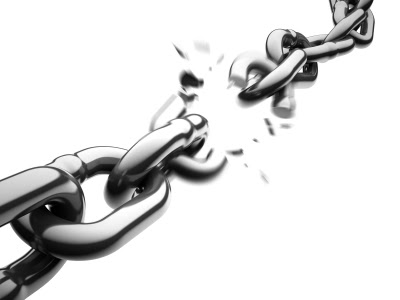"Concentration of money and authority in any single entity NECESSARILY attracts those who would abuse that power for their own selfish interest."
- Ryan Roland
I say this to those who believe that centralized planning can work; that government control is not only necessary in some instances, but better and preferred in many; that the free market and decentralization just doesn't work. Beyond the fact that such management is necessarily a direct and intolerable restriction on freedom, here's my core problem with the theory.
Let us assume that Barack Obama (or someone) were to create a more centrally planned America. And even more surprisingly, let us assume that it works. That somehow, everything is balanced, everything runs, everything is regulated, everything is allocated, those that can, produce, and those that need, receive. And in this instance, despite all the real world evidence and all the logic and common sense, the collectivists' dreams are realized. Let us say that it came about through genuine compassion and thoughtful prudence and planning. These planners were genuine in their desire to better mankind and designed a system that provides for all. For a decade after their ideas were initially put into action, they gave their system careful tending, feeding and nurturing and it all went smoothly.
Now what?
Well it is my belief that things would eventually turn sour (and relatively quickly). The reason for this is that even if the creators of such a Utopian dream had the very best and genuine of intentions, eventually those who created and nurtured the system would be replaced. They might die or retire or simply be replaced by someone else. This is where things get hairy.
The economy is a complicated system. Therefore, the system put in place to organize, plan and coordinate it would not only be large, but would necessarily be even more complicated and intricate. By creating such an almighty redistributive machine, they have created massive channels of money and it requires oversight and regulatory agencies with phenomenal powers of authority. This type of power is like honey to flies for those that seek power. And unfortunately, many of those that seek power, wish to use that power to "help" themselves and those around them. And I don't even need to go into detail to describe (since we see it happen all the time) the means by which a corrupt person placed in a position of power, can cause problems. And as we see with most politicians, even if things start to go wrong because of their interference, they would only blame someone else.
Even innocent incompetence can wreak havoc. Central planning leads to "central" points of failure. A mis-allocation of money, an error in quota requirements, a mistake in regulatory restrictions can cause a chain reaction that negatively affects the huge swaths of the economy.
In the end, no matter how well you plan an economy, it will fail with central management because of the attraction that power would have on those who would abuse it. To me, argue all you want about central economic planning, about incentives, subsidies and credits or penalties, fees and taxes. It just doesn't make sense to restrict freedom to that degree and to create that type of temptation in order to create an economy that requires perfect planning to avoid potentially massive negative outcomes.
PS: For those that think that some combination of capitalism and socialism is the way to go, same argument applies. There will always be the debate of what should be free and what should be planned. And in that situation, you're creating the temptation for people to come in and advocate for more and more to be controlled. Something fails in the free market: requires government oversight. Something fails in the controlled economy: requires MORE government oversight. I believe that is how we have found ourselves with the chimera of an economy we currently have.

No comments :
Post a Comment